Franki Sibberson is a literacy leader with over 30 years of experience as an elementary classroom teacher in Ohio. Franki served as president of the National Council of Teachers of English. She is the co-author of Classroom Design for Student Agency with Lynsey Burkins published by NCTE and In Community with Readers published by Stenhouse. She currently serves as the Executive Director of SproutFive’s Institute for Professional Learning. Franki provides leadership and consulting to schools and nonprofits.
Rachel Daniels, Adolescent Literacy Consultant
Produced By:
Creators and Guests
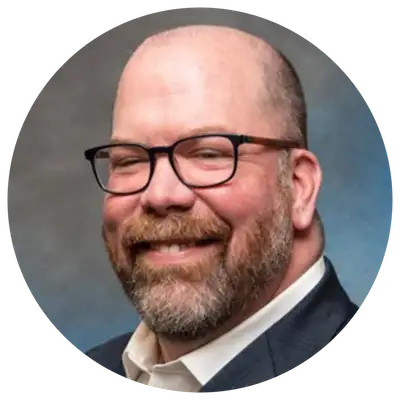
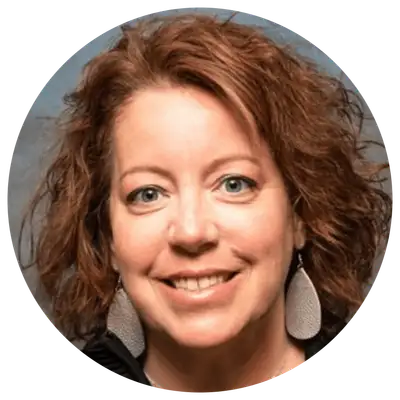
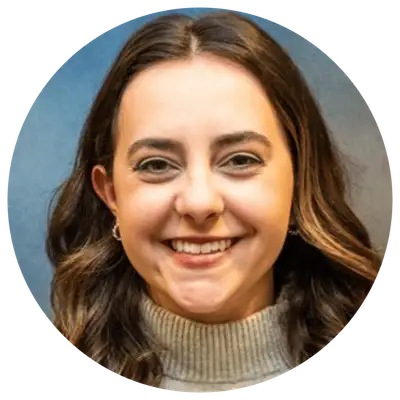
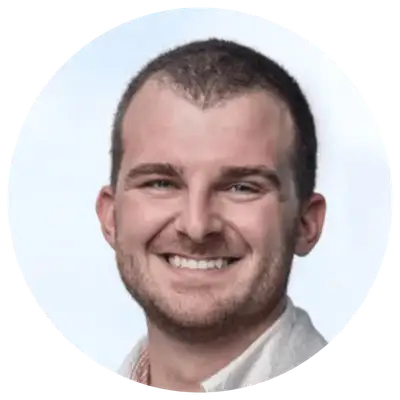
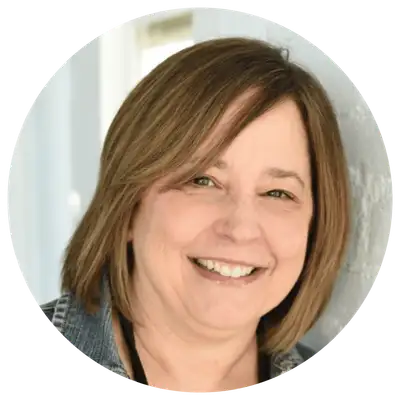
What is The Conversation?
Welcome to "The Conversation", the ESC of Central Ohio's podcast! Join podcast hosts John Hambrick and Rachel Daniels every month as they explore a variety of topics featuring voices in education, helping to ignite ideas and inspire change. Want to be part of "The Conversation"? Email us: brenna.schoen@escco.org
Colin Page McGinnis:
My dream, I guess, is for the type of work that we're doing at SproutFive to be the norm in early childhood and not the exception. I would love for us to be just another provider instead of this really awesome North Star anomaly that we currently sit at now.
Speaker 2:
That was Colin Page McGinnis, CEO of SproutFive. On this episode of The Conversation, we'll learn more about SproutFive's efforts to revolutionize our country's approach to early childhood education. Let's dive in.
John Hambrick:
Hello and welcome back to The Conversation, Ohio Voices and education, igniting ideas and inspiring change. Here alongside my esteemed co-host, Rachel Daniels, we are bringing you an incredibly rich conversation on early childhood education. Today we have Franki Sibberson, executive Director of SproutFive's NUDL Institute for Professional Learning, and Colin Page McGinnis, CEO of SproutFive. Franki and Colin, thanks so much for being here for this conversation and we're going to get into the meat of it. If you could, would you tell us about SproutFive and your mission?
Colin Page McGinnis:
Yeah, thanks for having us, John. I'll kick off and then let Franki chime in. SproutFive has been around since 1922. We've actually been in the business of early childhood before early childhood was even called early childhood. So when Columbus was really interested during the war era in bringing the day nursery movement to our community, SproutFive was one of those initial programs that really made it, so women could enter into the workforce, they could stay in the workforce, and our littles at the time were getting care. And that was really the focus.
And as we've progressed over kind of the history of early childhood and what that means and what that looks like, we've developed into the organization that we are now. So SproutFive is a network of early childhood programs, our largest and flagship of which being down on the South End of Columbus. But we really take this approach to early childhood that thinks about how do we co-locate, and how do we partner with affordable housing and nonprofit hubs, education institutions and employers to take this two generation approach to early childhood, to uplift not only the littles in our care, but also the families that we're working with.
And really over the past couple of years, we've been seeing not only the importance of early childhood and the strength of our programming, but also the impact that we're having in the broader community and have shifted into this idea of early education. The things that we're doing in those first five years of a child's life really is a driver for community development. And we could do a lot of good with the work that we're doing in our classrooms. And then also with the NUDL Institute for Professional Learning, which Franki runs and the Center for Early Childhood Innovation, which is our research center. We've really bolstered into this one of a kind type organization that's serving almost 200 kiddos under the age of five every single year.
Franki Sibberson:
And I'll add on a little bit since I run NUDL Professional Learning, we're really about to empowering teachers. The narrative around early childhood educators has not always been a positive one. I mean, the amount of work that they do and the brilliance in these classrooms is unbelievable. So working to build credentialing, knowledge and all of that, but also empowering, our model's built so that teachers are doing the teaching of teachers. And traditionally, a lot of the professional learning has come from outside. And so we're really building a system where teachers are the experts and the ones in the classrooms who are also then sharing what they know to support other teachers. So that has a pretty big piece in the whole early childhood realm.
Rachel Daniels:
So I'd like to hear your perspectives if you could, I'm going to put you on the spot, Colin and Franki. Could you give us just a quick elevator pitch and detail for us, just your quick 30-second take on why early childhood education is important and why people need to honor the value that it brings?
Colin Page McGinnis:
Yeah. So I'll kick this one off and preface this with the reality that I'm a developmental psychologist by training. So I'm not necessarily from the classroom. And while I've taught in the higher Ed space, I'm not a teacher as my background. And I think that's actually why I think early childhood is so important, in that so much of brain development is happening before the age of three. So much of who a child is, is developed in those experiences that they're having under the age of five. The attachments and the connections that they have, not only with their peers in the room, but also with adults and caregivers that they're seeing every single day. We know that the outcomes from early childhood, both the child outcomes from the day, the day year, the year, and also things like kindergarten readiness are going to have an impact on high school graduation rates.
They're going to have an impact on things like teen pregnancy and our ability to drive the economy. And there's this duality to early childhood where we also know when families are able to access care, they're able to engage in the workforce and better their opportunities and better their impact, and also have this partner in child-rearing to use an older [inaudible 00:05:40] term, that I think is super awesome and important beyond what we typically talk about, which is learning those ABCs and 1,2,3s. I think we often undervalue the impact of not only early childhood, but the predominantly women and women of color in the classroom that are really uplifting and shaping an entire generation of our community through early childhood programming.
Franki Sibberson:
And I come from K-12, so most of my work has been in K-4, K-5 and so I've been in early childhood for the last several years. But for me, learning from Colin and watching the teachers at SproutFive, the whole piece of kids building their identity is a whole different thing at zero to five, the way they change from the time they come to us at six weeks to the time they leave at five is unbelievable. And so not only are they building their identity, but they're figuring out what relationships are, what their relationships to learning are, how to make friendships and all of those things that are really important for them to be successful beyond us. So it is a pretty amazing, amazing time. And I think without it, they leave without all of those skills.
John Hambrick:
If we haven't learned from COVID and the importance of early childhood education and you sharing about the child's identity outcomes for that learner at a very young age, progressing fortunately into the workforce. Now, in our current environment, what's your ideal vision for early childhood education and Franki or Colin, either one of you can start, but I'd love to hear from both of you on what your vision is.
Franki Sibberson:
Yeah, I can start. Since I'm so focused on teachers, the one thing that I see that would be my ideal vision, my dream, would be to really make sure that we create a community of learners within the teaching field in early childhood that a lot of times our teachers are working six to six. They don't really get out, they can't go to a lot of professional development together. They're always with the people inside. So really creating that community of learners between and throughout the whole early childhood field, whether that's in Franklin County, Ohio or the country. But really I see that as a need and something if we want to empower our teachers, that would be my dream, my vision.
Colin Page McGinnis:
And when I think about my vision for early childhood, I think it really is beyond the things that are happening in the classroom because there's so much good already there and lies more on the systems and the infrastructure of early childhood that I think need the most innovation, dreaming and value shifting. If we were to even make this simple shift of acknowledging early education as education and aligning the way the systems and processes work, to what's going to happen six months from the time one of our littles graduate our program and go to kindergarten, we could have a massive impact in the way we uplift teachers. The way we go about training teachers, frankly, even calling teachers, teachers is still unique in the sense for early childhood. There's still that conversation and dialogue around a child care worker or even a like daycare worker, which is not necessarily how we should be thinking about the profession.
There's a whole slew of things that we could get into then around how do we provide supports to children if we're not thinking about early education as daycare or child care, but instead education at its youngest ages. So how do we provide things like mental health support and access to a physician and access to family supports and uplifting a family? These are all things that we don't currently get to do within the system. And it's not because those in early childhood don't want to. And it's not because early education as a field isn't talking about it. It's because frankly there's just not resources or time to do that. So we're very fortunate over here at SproutFive to have a whole team that gets to think about these big things and Franki gets to do some awesome work with how do we uplift teachers? But that's super unique.
And my dream, I guess, is for the type of work that we're doing at SproutFive to be the norm in early childhood and not the exception. I would love for us to be just another provider instead of this really awesome North Star anomaly that we currently sit at now, because it would benefit families more than anything else. And I think my vision for early childhood in the dream world is, how do we uplift those families in a system that supports them and supports those supporting them?
Rachel Daniels:
So both Franki and Colin, you are painting a complex picture of the early childhood world that I think our listeners and those outside of our listening audience might not have yet conceptualized. So let's take it a little deeper with some specifics, tell us how do teachers become equipped to support children in early childhood education? What do you see as some of the most critical or important non-negotiables for teachers? And Colin, I particularly like how you're naming the fact that we need to recognize these professionals as what they are, teachers. So talk to us about that.
Colin Page McGinnis:
So, before my life at SproutFive, I was in the academic higher Ed space, and I'm actually a career purist, so I can probably go way too into the nitty-gritty here on the types of things that we need to be doing to support teachers. But I'm actually going to paint broad strokes like that for the beginning of this conversation and then really let Franki take over because I think she does a great job talking about those day-to-day practices and creating agency for teachers that I really want her to highlight. But when we're thinking about the highest level, I think early childhood falls into the trap often of debating back and forth the merit between experience credentialing and training in the professional learning sense, or whether that's in the higher education sense, what that might look like. And we fail to do two really important things.
The first is acknowledge that a lot of teachers in early childhood, because of systems of inequality that exist just in our education system, have been told that they can't get a bachelor's degree, that they don't have the experience or the background, or life experiences happened and they were 17, 18 years old, and instead of going off to college, like they may have wanted to do to become a teacher, they had to step into early childhood because family things came up. They had to take care of a parent, they had to take care of their own kiddos, and early childhood was a way for them to step into the profession and still be an educator, but without everything else that may have been seen as a barrier.
And as we've moved the field forward, as we've added policy things in, as we've thought about requirements for credentialing and power to the profession with the National Association for the Education of Young Child and all the other dynamics that fold into creating a public infrastructure for early childhood in whatever sense that may be, we've lost that reality and we've said, "Hey, credential is going to be the thing that's going to give us the best outcomes in the classroom."
And while there's some merit to that, some work to that, there are actually some things that we could be doing that are simpler in the regard of how do we create awesome educators in the classroom. And it's making sure that we're balancing things like the opportunity for professional development and the ability to be supported by your supervisor and be supported by your director or your team lead and having resources available to you so you can create a thriving and flourishing classroom and balancing that with the reduction of things like poor pay and not having benefits and working these really long strenuous hours and not getting acknowledged for the work that you're doing.
So when we're thinking from how do we create optimal environments where teachers can thrive, it really is this balancing act of making sure that we're investing into a teacher while ensuring that they have the tools, resources, and support that they're going to need to create a thriving environment for a child. And I'm going to hop off my soapbox for a little bit and talk to Franki about how she actually does some really awesome work to create those opportunities for teachers and the work that we've been doing in the credentialing and professional learning space with NUDL. But yeah, it's that interesting balance of those two that I think we fail to account for when we're talking about the professionalism of teachers in the early learning sense.
Franki Sibberson:
And I feel like yes, all that system stuff is huge, and I think there's a bigger piece that's less measurable, and it's our stance to what teachers need. I think what we're trying to create is very strength-based and very mentor-oriented and coach-oriented, where the teachers are the experts. We've created a CDA model, which is the early childhood credential in the organization so that teachers don't have to go somewhere else to get it. So really thinking about those barriers that have kept people from getting credentials, but also thinking about our stance not just being, sit and learn for six hours and you get six hours of credit. But how do we build a reflective community of learners to really think and how do we make sure they're being treated and taught as professionals?
And most of that is coming from coaching and mentoring from people who have been in the classroom within the community and are brilliant at it and really supporting other teachers and really figuring out how to elevate that. So I feel like it's two things. It's the system stuff, but there's also this stance that I think as a more global community of educators in general, we have to really include early childhood in that conversation, as reflective practitioners and professionals who are the experts.
Rachel Daniels:
So Franki, what our listeners can't see is the wall of books behind you. And from my perspective, there's no one better situated than you to share just the opportunities that we have to build rich literacy lives for not just the children who are part of these educational landscapes, but also for families in the greater community. So as we wrap things up, Colin and Franki, do either of you have resource ideas, if our listeners want to hear more about early childhood experiences, opportunities, or are interested in learning how they can get involved in this kind of work? Where might you direct us, share a couple of resources?
Franki Sibberson:
I'm going to share my favorite professional resource right now. It's from NACI. I don't know if this is what you wanted, but it's from NACI and it's the new book on literacy. It's called, Literacy Learning for Infants, Toddlers, and Preschoolers. I almost never read a book on literacy that I agree with 100%. This one is brilliant. It has a brilliant set of four authors who have done this and really looked at from age zero to age five, what do we need to do, to get kids set up to be successful as readers and writers? And it is a brilliant resource, so I'm handing it to everybody I know. So anytime I can shout it out, I do.
Colin Page McGinnis:
Yeah. And I think there's a really awesome resource that is probably underlooked, which is the educator of your child or your niece or your nephew or just the teacher down the hall if you're in a K-12 building or if you're a student yourself thinking about, "How do I enter the field of education and what does that look like and how does early childhood get folded in?" I would say the best resource you can find is a teacher in a classroom right now. And ask them about their journey, particularly in early childhood, you can ask 10 different teachers their experience and you're going to get 10 different answers. You're going to have the educator like we have in our building who graduate from high school and immediately take their first job as an aide or a support professional and then get their credential and work their way up.
On the flip side, you're going to have those that go through all the way to their master's degree and get their teaching credential and their licensure and opt to teach in early childhood instead of kindergarten, first or second grade. I think the best resource though is really having those conversations and those dynamics and ask folks, ask teachers that are practicing, "How'd you get here? And what could I do?" The community colleges are going to have great programs. The universities are going to have great bachelor degree options. There are community programs like ourself, it's sproutFive, your NUDL and other organizations like Action for Children and Future Ready Columbus when we're thinking about Franklin County that are going to have opportunities for professional learning. But I think the thing that's awesome about early childhood is you get to create that narrative and that pathway for you, and it can become a profession, it can become your professional identity. And we don't have to think about it as just an on-ramp that I think early childhood is often thought of, in the context of being a professional in the education space.
Rachel Daniels:
And John, as Colin was talking, I'm quite certain that your ears perked up at this notion of apprenticeship, building, mentoring relationships, and allowing high school students to just begin to step their toes into the possibilities of early childhood being an incredible career path for students.
Colin Page McGinnis:
And if I could, just a shameless plug for some of our work, we actually just started an apprenticeship program, apprenticeship work with Bank Street to think through how does our CDA program actually serve as a model. We're one of 18 organizations that were accepted into this from across the country, and we're doing some really intensive action research around building up our program and supporting our program and what does that look like? And what's really awesome is there are two states, and I won't pick on any of my peers necessarily, so we'll vaguely say there are two states that when you combine the training that they've been doing for teachers and their communities and put it side by side, the SproutFive, we're actually training more teachers in the space than those two states combined, which is really exciting and a testament to Franki and the teachers that work and the NUDL programs work.
But it's really awesome to think through apprenticeship and apprenticeships in early childhood being born not only in Ohio in its next iteration, but also from a provider who is actively also operating 14 classrooms. And it's not necessarily coming from a trade group that's going to then pass it down to a provider. We're able to show, you can be caring for children and uplift the next generation of teachers at the exact same time. And NUDL is a great example of how they do that.
John Hambrick:
Colin, you're speaking my language. I love the idea of apprenticeship and then here in Central Ohio and really across the state, there are early childhood development pathways in high schools that we've been able to convert part of that into a recognized pre-apprenticeship, giving those students a pathway into that registered apprenticeship and then into a profession in education. Period. And so this is exciting. I hope to help develop that high school talent pipeline with you and with this exciting new apprenticeship program. So thanks for sharing that.
Colin Page McGinnis:
Yeah, thank you.
Rachel Daniels:
Well, folks, we've done it again, we've come to the speedy end of another episode in our series. Thank you so much Franki and Colin for joining us, John and me here today on The Conversation. As always, we're thankful to our listeners for following our journey. You can check our podcast description for the resource links for those materials that we discussed in our time together today. We certainly hope you'll join us again. And for John, this is Rachel. We'll see you next time on The Conversation.